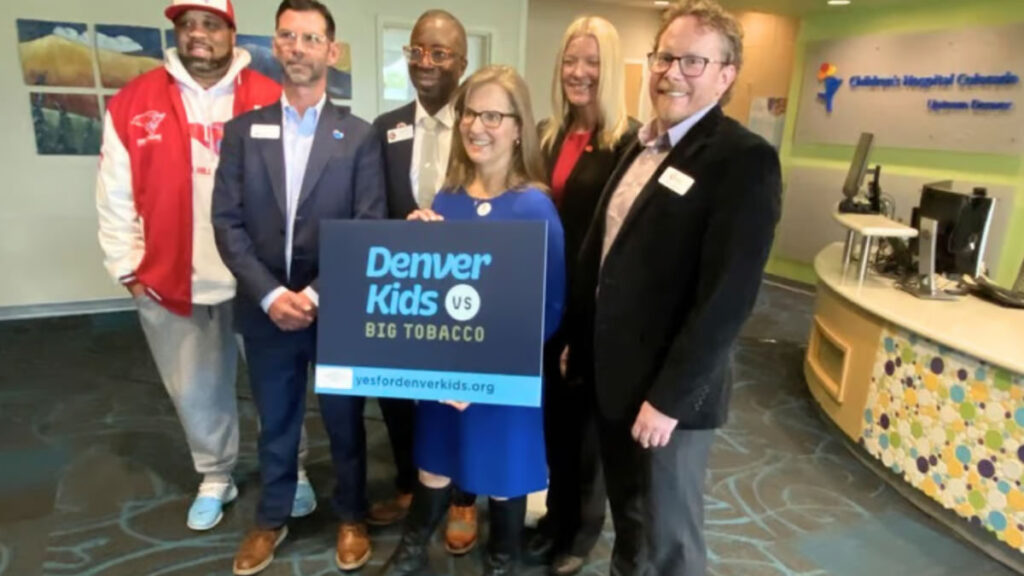Health Advocates Launch "Denver Kids vs. Big Tobacco" Campaign to Defend Ordinance Against Repeal Effort
The battle over flavored tobacco and nicotine products in Denver is heating up, destined for a direct decision by voters this November. A coalition led by Children’s Hospital Colorado and public health advocates has launched a campaign committee, dubbed "Denver Kids vs Big Tobacco," urging residents to vote "yes" to uphold a city ordinance banning the sale of most flavored products, including those used in vapes.
This campaign directly counters an initiative successfully placed on the ballot by local vape shop owners and allied groups seeking to repeal the ban, which was approved by the Denver City Council in December 2024 and signed by Mayor Mike Johnston. The law officially took effect on March 18, 2025, although full enforcement by the city's health department isn't anticipated until 2026.
The Heart of the Debate: Youth Protection vs. Business Viability
At the campaign launch event held at Children's Colorado Outpatient Care Center, supporters of the ban framed the issue as a necessary measure to protect children from nicotine addiction. They argue that flavored products – encompassing everything from fruit and candy tastes in vapes to menthol in traditional cigarettes – are specifically designed and marketed as "starter products" to hook young users.
"Big Tobacco has never had a problem driving revenue and fattening their pockets off kids and producing products that are kid friendly," stated Herman White of the Park Hill Pirates Youth Sports Organization, pointing to flavors like cotton candy and bubble gum as tactics "to ensure that they have a lifelong customer."
Pediatricians echoed these concerns. Dr. Monica Federico, specializing in lung health at Children’s Hospital Colorado, noted, "Eighty percent of children report that their first exposure to an inhaled tobacco product or e-cigarettes was flavored." She explained that flavors mask the harshness of tobacco and nicotine, making initiation easier. Furthermore, she highlighted research indicating that teens starting with e-cigarettes are more likely to transition to combustible cigarettes or other substances after nicotine has "primed that pathway."
Councilmember Darrell Watson emphasized the disproportionate impact on certain communities, stating, "Tobacco-caused death within the African-American community is the second leading cause of death for folks in our communities." Public health advocates also stressed the significant economic burden, citing city estimates of $2.2 billion in annual healthcare costs and $4.4 billion in lost productivity in Colorado due to smoking, translating to a substantial tax burden per household.
- Read more: Denver City Council Approves Ban on Flavored Vapes, Nicotine Pouches, and Other Tobacco Products
Retailers Push Back: "We Are Not Big Tobacco!"
Opposing the ban, nicotine retailers and their allies argue the ordinance goes too far, punishing legitimate small businesses that comply with age restrictions (selling only to those 21 and older) and infringing on adult consumer choice. They contend the ban won't stop youth use but will devastate local, family-owned businesses and cost the city significant tax revenue.
Phil Guerin, owner of Myxed Up vape shops and president of the Rocky Mountain Smoke-Free Alliance Board, is helping lead the repeal effort. "We are not Big Tobacco! We are small family-owned businesses," Guerin stated via email, arguing the ban "does absolutely nothing to keep kids safe -- all it does is target small businesses and cut into city tax revenue." He expressed frustration that city leaders allegedly ignored industry stakeholders, choosing instead to follow external influences. Guerin believes regulation, not prohibition, is the answer and lamented the opposition's "misinformation."
Grier Bailey, representing convenience stores through the Colorado Wyoming Petroleum Marketers Association (though not part of the repeal campaign), suggested the youth problem stems largely from illicit products, often from foreign sources, that bypass FDA scrutiny. He urged voters to "send a message to the council to go back and do better. Leave adults and their choices alone and target products where youth rates are highest."
Context: Local Action Amid Federal Uncertainty
This isn't Denver's first attempt at such restrictions; a similar measure passed by the council in 2021 was vetoed by then-Mayor Michael Hancock. The current fight unfolds against a backdrop of perceived instability and potential weakening of federal tobacco regulation. Recent reports of layoffs and restructuring within the FDA's Center for Tobacco Products have fueled concerns among health advocates about the agency's capacity for effective enforcement, particularly against underage sales.
"What we are doing at the state level and at the local level is critically important in terms of being the safety net to protect kids' health," said Jodi Radke of the Campaign for Tobacco Free Kids, arguing that federal "dismantling" necessitates stronger local action.
Conversely, Guerin sees recent court decisions reaffirming FDA authority and potential changes at the agency as creating a clearer path forward for regulating products responsibly for adult consumers, suggesting local bans are unnecessary interference.
What's Next?
The stage is set for a contentious ballot measure campaign this fall, likely culminating in the November election unless the City Council opts for a special election. Voters will ultimately decide whether Denver retains its ban on flavored tobacco and nicotine products or repeals it, weighing arguments about youth health and economic impacts on local businesses.
- News source: ‘Denver Kids vs. Big Tobacco’ campaign wants to protect the city’s ban on flavored tobacco

Digital Content Creator & Vape Industry Analyst
Jake Miller is a prominent voice in the American vaping community, known for his transparent, tech-focused approach to harm reduction and hardware innovation. With over six years of experience in the industry, Tyler transitioned from a hobbyist to a full-time content creator, building a loyal following through his unfiltered reviews and deep-dive technical tutorials.




